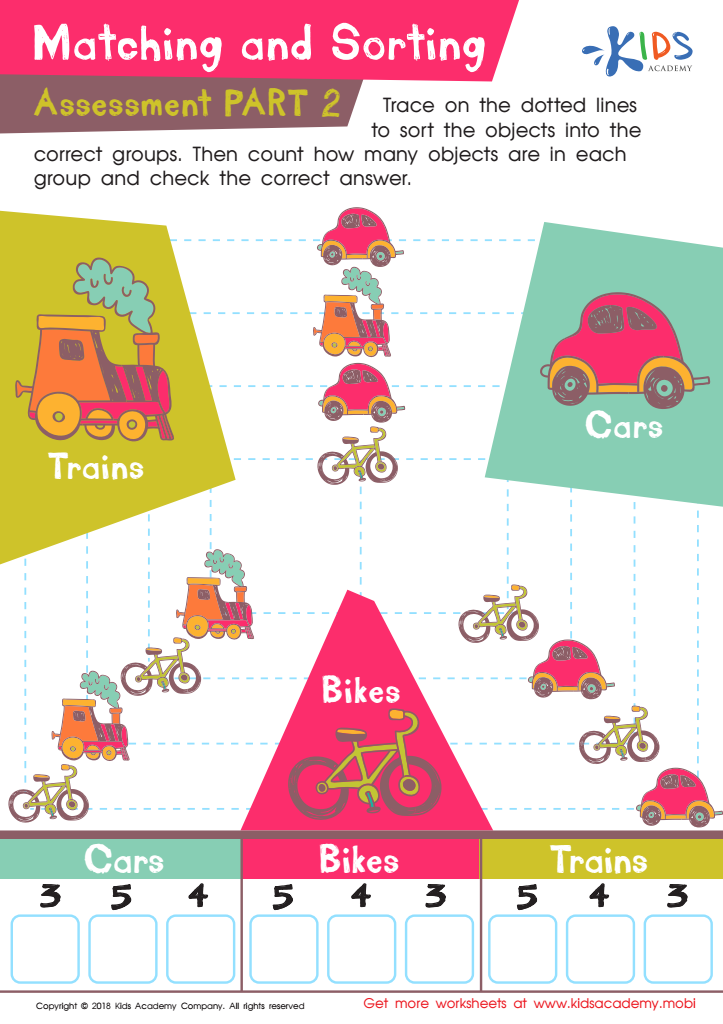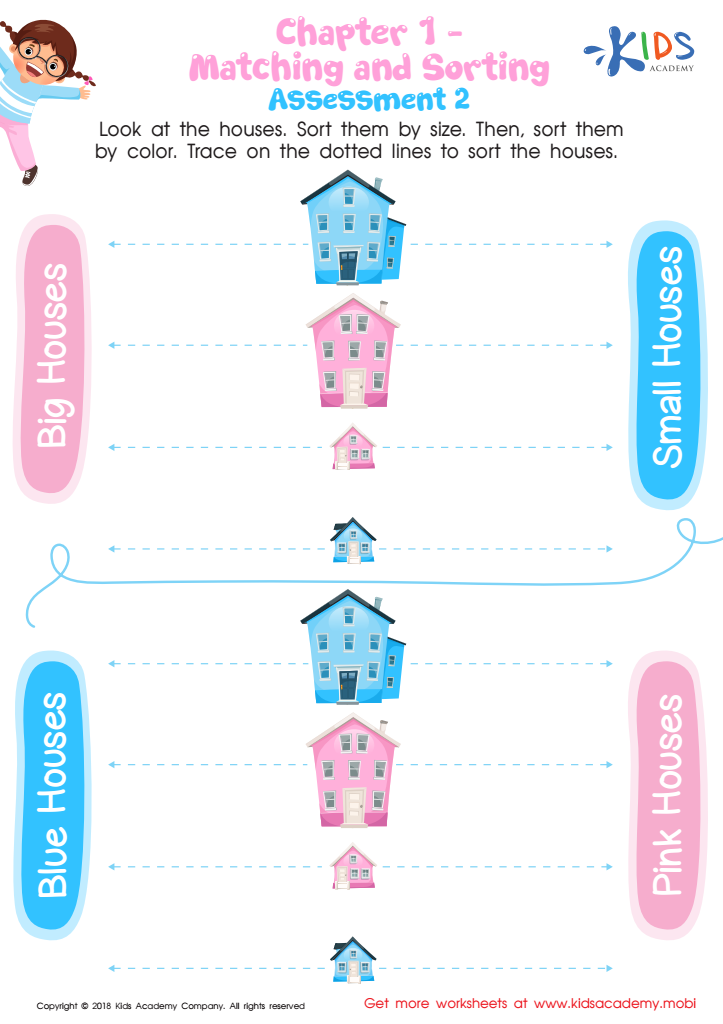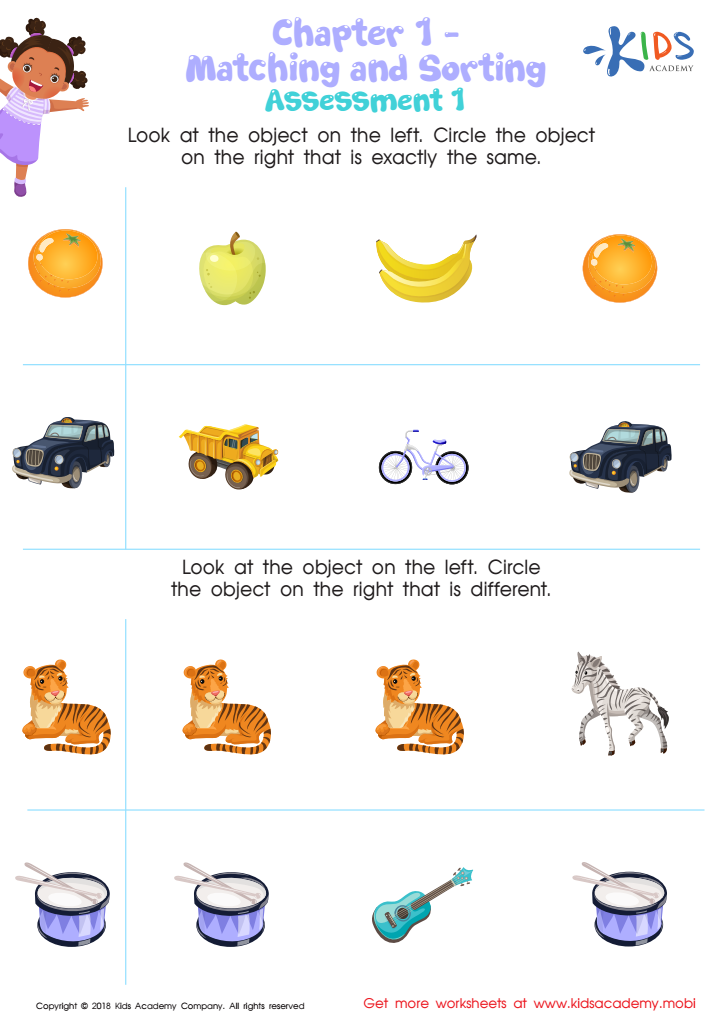Comparing Fractions Sorting Worksheets for 4-Year-Olds
3 filtered results
-
From - To
Explore our engaging "Comparing Fractions Sorting Worksheets" designed for 4-year-olds to ignite their mathematical confidence! These fun, interactive worksheets introduce young learners to the foundational concept of fractions by helping them visualize and compare different portions using colorful illustrations. Ideal for early math skills development, these worksheets encourage counting, sorting, and recognizing equal and unequal fractions. Perfect for classroom or home learning, the activities are crafted to inspire critical thinking while nurturing a love for math. Watch your little ones thrive as they sort and compare fractions with joy and creativity! Join us for a playful learning adventure today!


Matching and Sorting for Kindergarten: Assessment 2 Worksheet


Matching and Sorting for Preschool: Assessment 2 Worksheet


Matching and Sorting for Preschool: Assessment 1 Worksheet
Comparing fractions is a crucial foundational skill that sets the stage for a child's mathematical understanding. For 4-year-olds, engaging in activities like Comparing Fractions Sorting can significantly enhance their cognitive development. Parents and teachers should care about these activities because they promote early numeracy skills, helping children grasp concepts of quantity, size, and division.
Sorting fractions introduces the idea of parts of a whole, which is essential for understanding everyday situations, like sharing food or dividing toys. It teaches children to recognize and classify things based on their sizes, fostering analytical thinking. Furthermore, such activities enhance fine motor skills as children manipulate and organize different fraction sets.
Involving parents in these activities also strengthens the parent-child bond, encourages cooperative learning, and makes learning fun and interactive. Teachers can utilize these sorting games in the classroom to create a collaborative environment that allows peer learning. By prioritizing comparing fractions at an early age, we lay a strong mathematical foundation that can lead to future success in more complex concepts. In essence, addressing fraction comparison with young children cultivates critical thinking and problem-solving abilities, facilitating a positive learning attitude towards mathematics as they grow.
 Assign to My Students
Assign to My Students





















